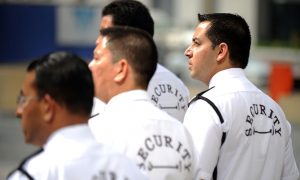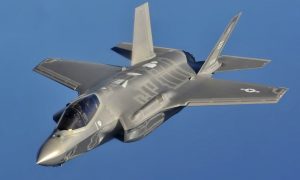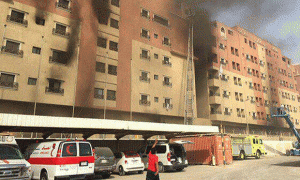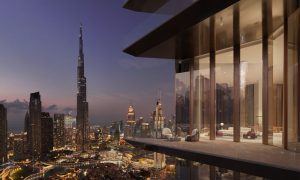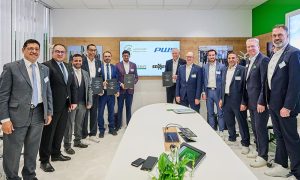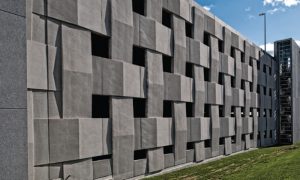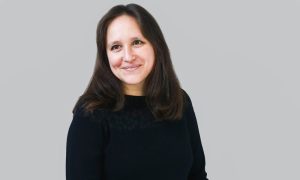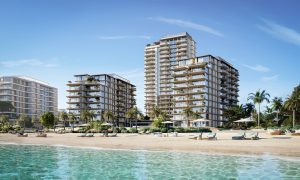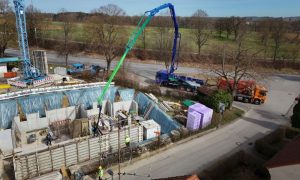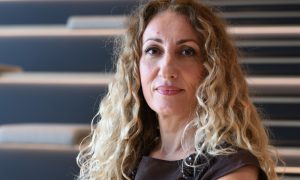Building security: Why Gulf states need to follow Dubai’s lead
Security standards vary in the region, consultants say
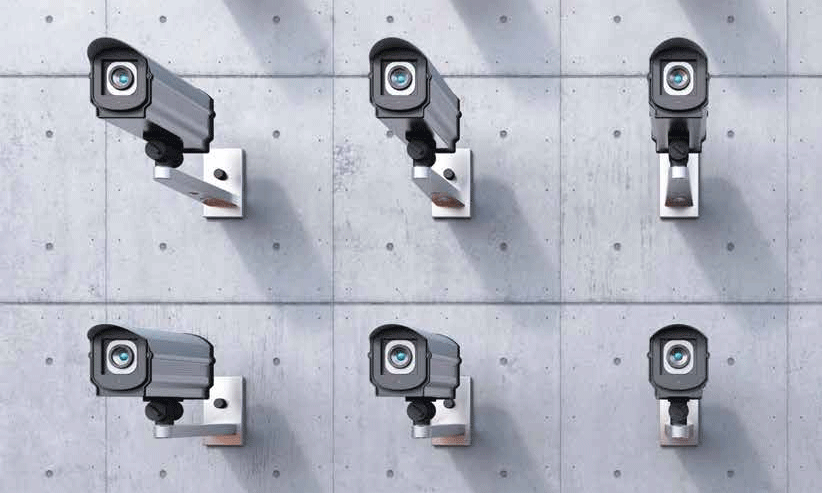
To explain the three fundamental principles of security, Dr Munaf Al Nidawi, CEO of Consquare Security Consultancy, alludes to a popular car brand. “I believe security is very similar to the Mercedes logo, with a circle with three equal thirds,” he says. “You cannot develop a single third and ignore the others. They are all of equal importance. These three thirds include human, technical and procedural or regulatory factors.”
When it comes to the last factor, Dubai is one of the few cities in the GCC with a specialised law for security providers and users, according to Adil Abdel-Hadi, managing director at IES. He elaborates: “If I talk about the Dubai template specifically, yes, it is a very comprehensive system and it is governed by a law [Law (24) 2008] which is not in many countries in the region at all. There are regulations in other countries, but this law is the most comprehensive as it actually covers both the manpower and the equipment.”
Sam Samuels, a principal consultant at UK-based security consultancy SGW, also highlights the importance of up- to-date regulations. “Dubai has set out requirements for security which are under Law 24 of 2008, and the supporting annexes are regularly updated. This requirement focuses on technological solutions, compared to the Crime Prevention through Environmental Design (CPTED) focus of Abu Dhabi, and this results in a different design emphasis.”
READ MORE: Law for security guards and providers ‘needed across the Gulf’
ME CONSULTANT: Latest edition of magazine online now
Abdel-Hadi continues: “In Dubai, there are laws and regulations. People have to pass tests, and they only pass after undergoing an internationally accredited training course which is 60% practical and 40% theory. They are only then certified to work with security professionals.” He adds that these tests encompass security guards, security supervisors, security managers and security directors.
Although consultants are the key innovators in certain disciplines, such as design, the situation is somewhat different in technology-based sectors like building security, where manufacturers are responsible for raising the bar.
Samuels comments: “Improvement in technology is driven mainly by the manufacturers and rarely by the security designers, consultants or operators. For example, megapixel cameras are being pushed by manufacturers, whereas designers know that they have inferior performance in low light and a large impact on storage capacity requirements. Despite this, to the client they appear to be the perfect solution.”
As technology is in constant development, the experts are unable to agree on which innovation has had the greatest impact on security in recent years. Al Nidawi asserts: “The latest technology is to embed the computer functionality into ‘edge devices’ – the final devices that are in touch with observation, like the camera itself. Previously, we had the analytics done in the server, but nowadays those analytics are processed in the camera itself. This is actually a huge development.”
Abdel-Hadi points to improvements in closed-circuit television (CCTV) as a crucial technological development, while Samuels remarks: “The latest trend in security design is definitely the drive by clients for smart security solutions. This is the need to closely integrate the security systems with the Building Information Management (BIM) systems.”
While important, technology should not be the only consideration when it comes to security consultancy. Paul Bogan, principal security consultant at Atkins Global, asserts: “Technology is just a part, and we have a holistic strategy. The real movement needed is towards an integrated security system over a single IT network. Cyber security is the next big thing, and if you look at the news there are a lot of issues. Infrastructure platforms are interconnected and you no longer have to be physically somewhere. You don’t have to be Tom Cruise from Mission: Impossible to hack the system of any institution, I can do it from my laptop if I want to.”
READ MORE: Law for security guards and providers ‘needed across the Gulf’
ME CONSULTANT: Latest edition of magazine online now
While other countries in the region may lag behind, Dubai recognises the need for adequate manpower for security. Abdel-Hadi highlights: “In the security industry, the only country [in the GCC] which is actually implementing the law fully – regarding training, equipment, manpower – is Dubai. The other countries are not.”
Highlighting the importance of strong manpower, he adds: “Attackers always try to find ways around to break into systems – the way I look at it, if a man can make it, a man can break it. So at the end of the day, the system can be broken, and that is why the human factor is very important. You have to take the human factor into consideration, otherwise the equipment on their own will never work.”
Yet Al Nidawi points out that, in many cases, personnel are being replaced by technology. “Machines can’t substitute human beings, but this is what is happening now. We depend on technology more than human beings, but the fact is that the machine can’t substitute humans, it can only add extra serving capabilities to the human.”
Even if security technology and manpower are integrated comprehensively, a perfect security system does not exist, according to Samuels. “There is no such thing as a perfectly secure building,” he says. “All systems – whether they are electronic, physical or operational – are subject to failure. Tier 4, the highest standard for security of data centres, defines a resilience of 99.995%. This is the highest level of security one could expect to achieve, but this predicts that the systems will not function for 26.28 minutes per year. If this failure can be exploited by an attacker, the security has failed.”
Abdel-Hadi agrees: “If I told you there is a 100% secure building, I would be lying. It is an impossible theory. You cannot cater for everything. After 9/11, there is no flying of commercial aircrafts over certain cities in the USA. If they knew what would happen and didn’t allow the flying of certain aircrafts before, there wouldn’t have been 9/11. But that wasn’t a consideration, because you can’t cover everything.”
READ MORE: Law for security guards and providers ‘needed across the Gulf’
ME CONSULTANT: Latest edition of magazine online now
However, for Samuels, there is an invariable rule that should be applied to ensure the security of any building. “The design of any building must accommodate the principle that certain individuals will seek to misuse facilities. One should note the use of the word ‘will’ instead of ‘may’. Misuse is inevitable unless there is control or supervision.”
Even though security cannot be perfected, the UAE is always looking globally to remain on the pulse. Bogan asserts that the types of security technology used in the UK and the UAE are essentially the same. “The technology we use in the Middle East is from the UK, Europe and America, and a lot of the products are manufactured and assembled in China.”
Abdel-Hadi, who regularly visits the UK, argues that the technology used in the UAE is even more advanced than in the West. “We actually have better technology than they do in the Western world. For, example, in the UK, the majority of security managers still use a video cassette recorder [VCR], but in the UAE it is all digital.”
Whether or not security-related technology in this part of the world is more advanced than in other countries, the search for state-of-the-art technology never stops. Al Nidawi explains: “We are always chasing the latest technology. In the Middle East, most projects are not following the feasibility studies, so they invest a lot, especially in the field of security. We are adapting the latest technologies here in the Middle East.”
READ MORE: Law for security guards and providers ‘needed across the Gulf’
ME CONSULTANT: Latest edition of magazine online now


